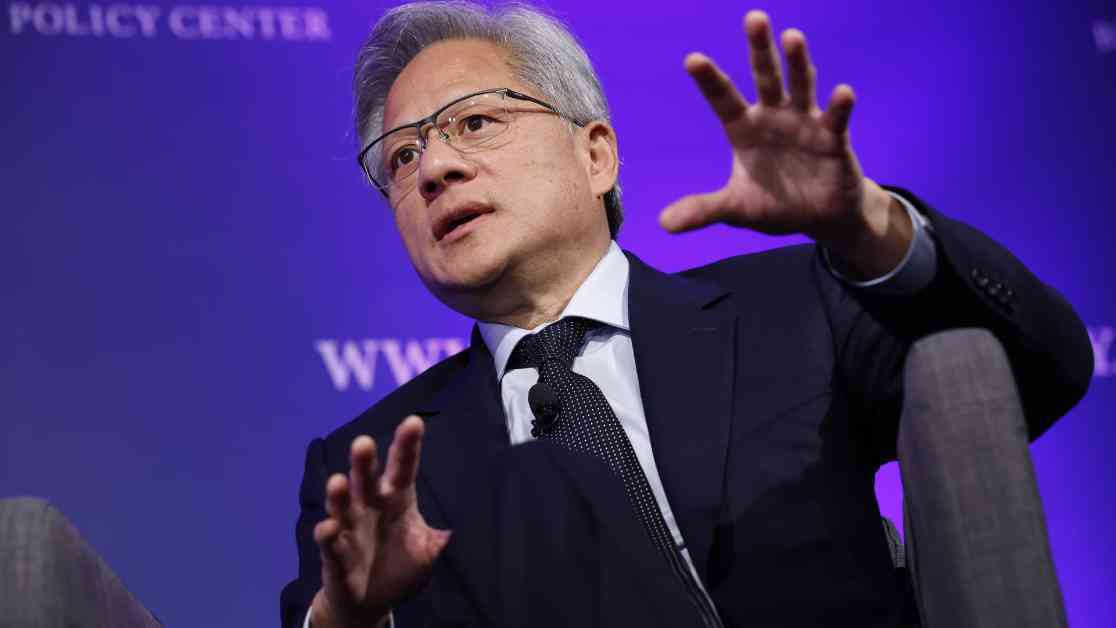NVIDIA CEO Jensen Huang recently shared his insights on the future of artificial intelligence (AI) and its impact on energy consumption and production at an event in Washington, DC. Following a successful quarter where Nvidia’s sales nearly doubled, investors and analysts are eager to see if the chipmaker can sustain this growth momentum given its $140 billion annual revenue run rate.
One of the key highlights for Nvidia’s future growth is the introduction of Blackwell, a family of server products built around its next-generation AI chip. During a recent call with analysts, CEO Jensen Huang and CFO Colette Kress provided updates on the launch of Blackwell, indicating that production is progressing well. Huang mentioned that they are on track to deliver more Blackwell chips this quarter than initially anticipated.
Despite missing some of the high expectations from investors, Nvidia remains optimistic about the potential of Blackwell. The company has already started shipping Blackwell chips to some of its key customers, including Microsoft, Oracle, and OpenAI. These early shipments are intended for testing and preparation, with larger volume shipments expected to begin in the current quarter.
Looking ahead, Nvidia foresees a significant increase in Blackwell sales in the coming quarters, surpassing the performance of its current AI chips, known as Hopper. The company acknowledges that demand for Blackwell exceeds its current supply capabilities, attributing this to the growing demand for advanced AI models.
Nvidia’s strategic partners, such as TSMC, Amphenol, Vertiv, SK Hynix, and Micron, play a crucial role in supporting the production of Blackwell chips. As the manufacturing process ramps up, Nvidia expects to address supply chain challenges and enhance the availability of Blackwell systems.
While Blackwell’s gross margins may be lower initially, Nvidia anticipates an improvement as the product matures and gains broader adoption. The company emphasizes that Blackwell represents a significant advancement in AI technology, catering to companies like OpenAI that require high-performance GPUs for developing cutting-edge AI models.
In conclusion, Nvidia’s focus on advancing AI capabilities through Blackwell demonstrates its commitment to driving innovation in the industry. As the market evolves and demand for AI solutions grows, Nvidia remains at the forefront of delivering cutting-edge technologies to meet the needs of its customers. With the promising outlook for Blackwell, Nvidia is poised to sustain its growth trajectory and solidify its position in the AI market.




















